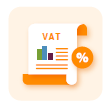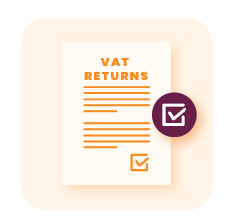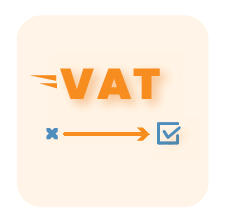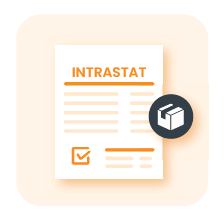Reverse Charge & “Call Off Stock” in Bulgaria
In the context of the reverse charge mechanism, the responsibility for paying VAT lies with the recipient of the service, rather than the supplier.
Under Article 82(2) of the Bulgarian VAT Law, the cross-border reverse charge mechanism is applied to specific supplies made in Bulgaria, provided the supplier is a taxable entity established outside of Bulgaria, and the recipient is a taxable entity under the VAT Law.
Call-off stock arrangements across the EU were standardized from January 1, 2020, with the introduction of the Quick Fixes provided by Article 17a of the EU VAT Directive, which has been incorporated into Article 15a of the Bulgarian VAT Law.
Read more about Reverse Charge and “Call-off stock” in Bulgaria in our comprehensive guide below.
Selling in Bulgaria?
Simplifying the EU’s call-off stock regime
Call-off stock arrangements across the EU were standardized from January 1, 2020, with the introduction of the Quick Fixes provided by Article 17a of the EU VAT Directive, which has been incorporated into Article 15a of the Bulgarian VAT Law.
These rules apply when a supplier transfers goods to a warehouse in another EU Member State with the intention of making a subsequent supply to a known purchaser. The simplification rule means that the transfer of goods to the warehouse isn’t considered a taxable event. Instead, the taxable event happens when the goods’ ownership is subsequently transferred to the purchaser.
This subsequent transfer is treated as a zero-rated intra-Community supply of goods from the supplier to the purchaser and an intra-Community acquisition in the Member State of acquisition by that purchaser. Consequently, the supplier is no longer required to register for VAT in the destination Member State.
If the following conditions are met, the use of the call-off stock simplification scheme is mandatory:
- A taxable person, or a third party acting on their behalf, transports goods to another EU Member State with the intention of transferring them to another taxable person who has the right to acquire them according to a pre-existing contract between the parties.
- The taxable person who dispatches the goods does not have an establishment in the destination Member State.
- In the destination Member State, the taxable person to whom the goods are to be transferred must be identified for VAT purposes. The taxable person dispatching the goods must be aware of their identity and the VAT identification number assigned to them by the destination Member State at the time of dispatch.
- The taxable person sending the goods must record the transfer in a register.
- The goods must be transferred to the intended recipient within 12 months of arriving at the consignment location. If this condition is not fulfilled, the goods are typically considered as transferred on the day following the expiration of the 12-month period.
The taxable persons are required to allow the tax authorities to verify that the call-off stock simplification scheme has been correctly applied. In the VIES Statement, the taxable person must also provide the identity of the taxable person acquiring the goods and the VAT identification number assigned to them by the Member State to which the goods are dispatched or transported.
Download the Bulgarian VAT guide
Bulgaria – Import VAT
VAT is only imposed on the importation of goods from outside the EU, which occurs when the goods are released for free circulation within Bulgaria, and import VAT is payable upon delivery to Bulgaria from outside the EU. Services cannot be imported and are therefore not subject to import VAT. As a result, it is necessary to distinguish between the import of goods and the cross-border supply of services.
Import of Goods
When goods from non-EU countries are imported into Bulgaria, import VAT is applied. The importer is responsible for paying this VAT. In this context, an “import” refers to the introduction of goods into free circulation within Bulgaria following an outward processing procedure. It also includes the importation of EU goods into Bulgaria from third countries that are part of the EU’s customs jurisdiction. Any other occurrence resulting in a customs debt is considered an import under the VAT Law.
As a result, importers who are registered for VAT and are using the imported goods in subsequent taxable transactions would be eligible for an input VAT deduction. This deduction allows them to claim a credit for or refund of the VAT charged on the imported goods.
The event that triggers the VAT charge for an import of goods occurs when the obligation to pay import duties arises, or should have arisen. The VAT becomes chargeable on that date.
Import of Services
In Bulgaria, there is no concept of importing services in the traditional sense, because services do not pass through customs. In terms of VAT, the place of supply is considered to be where the supplier has their business established.
When the service provider is based outside of Bulgaria and the recipient in Bulgaria is not a VAT taxable person, no Bulgarian VAT is due. This is because the place of supply is deemed to be where the supplier is located, which is outside Bulgaria.
However, if the recipient in Bulgaria is a VAT taxable person, the services are generally subject to VAT in Bulgaria under the reverse charge mechanism. In this scenario, the recipient, rather than the supplier, is required to pay the VAT.
The reverse charge mechanism is a system where the responsibility of VAT reporting shifts from the seller to the buyer of a good or service. This mechanism is beneficial as it simplifies accounting and circumvents issues related to language barriers and currency conversion rates.
The recipient, even though they are accountable for VAT payment under the reverse charge mechanism, has the ability to offset input VAT against the VAT levied on related taxable supplies. This means they can subtract the amount of VAT paid on inputs (e.g., business expenses) from the VAT they collected from their customers, and only the difference is remitted to the government.
Regarding deferring Import VAT in Bulgaria, Article 167a of the Bulgarian VAT Law permits importers to postpone VAT accounting for certain imports of items that are not meant for final consumption. Importers exercise this option through a declaration on the customs import paperwork. Under this scheme, importers are required to account for import VAT on their VAT returns.
However, this system only applies to specific listed products with a customs value of at least BGN 50,000. These items include salts, construction materials, chemicals, ores, and metals. The benefit of this system is that it can improve cash flow by allowing businesses to defer the payment of import VAT.
Last Updated: 19/10/2023
Disclaimer
The information provided by Global VAT Compliance B.V. on this webpage is intended for general informational purposes only. Global VAT Compliance B.V. is not responsible for the accuracy of the information on these pages, and cannot be held liable for claims or losses deriving from the use of this information. If you wish to receive VAT related information please contact our experts at support@gvc.tax








